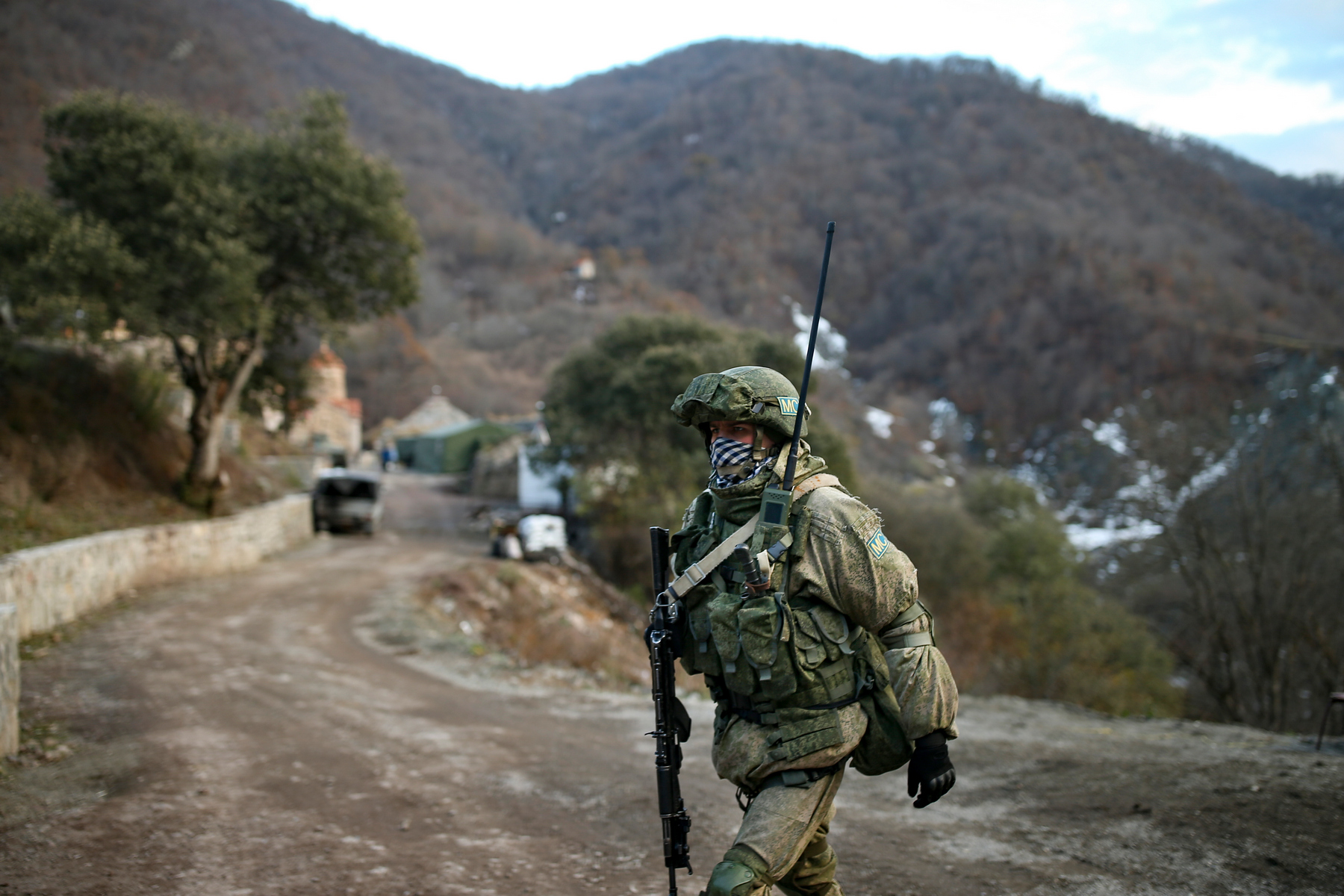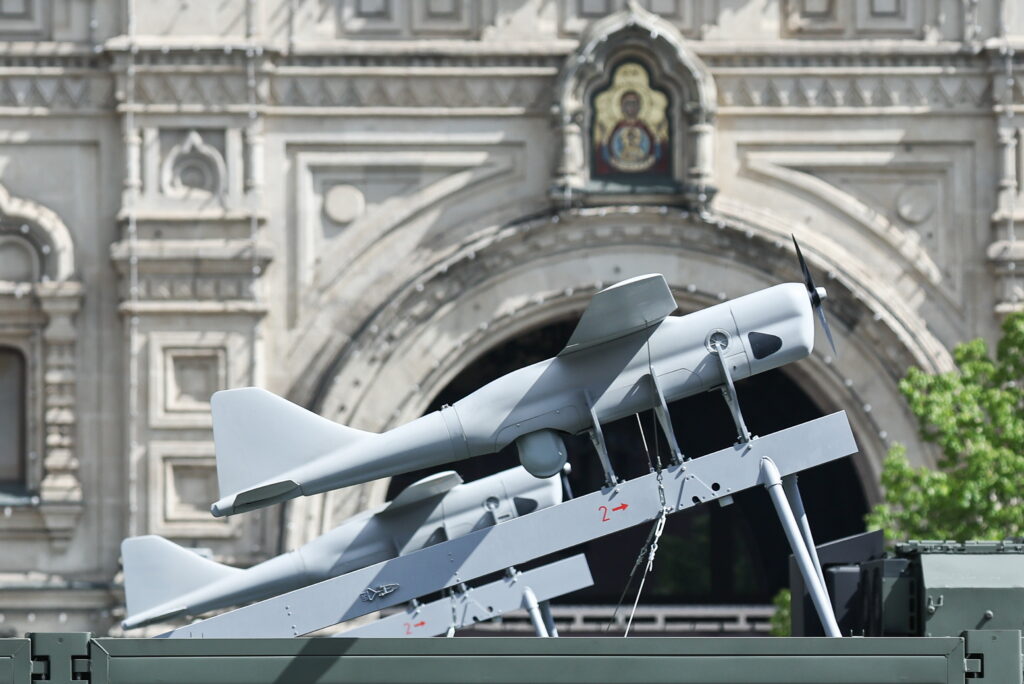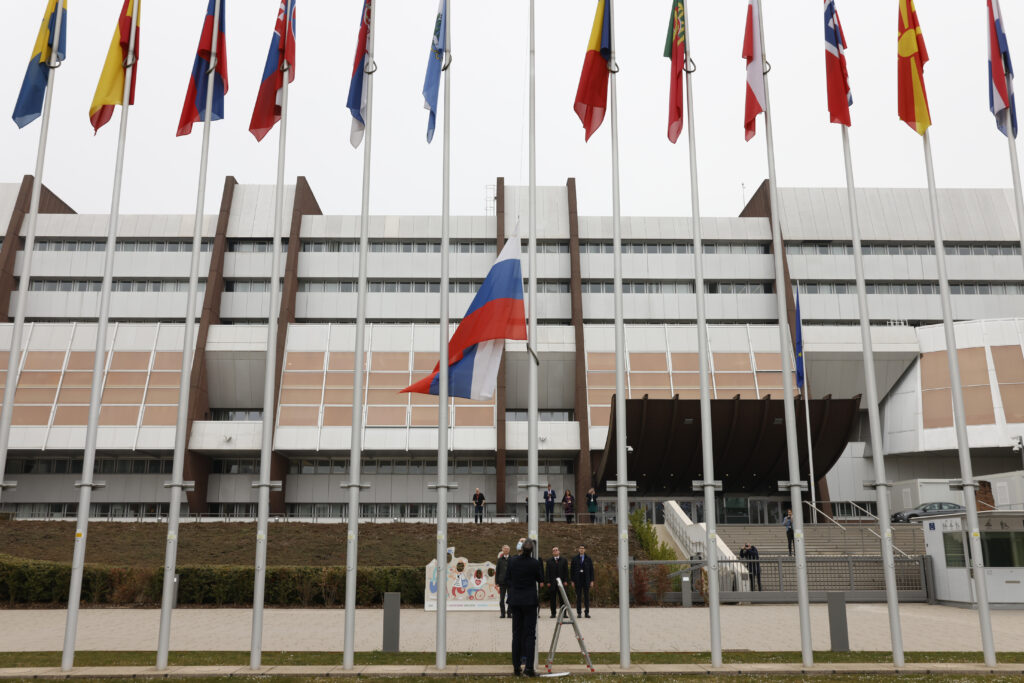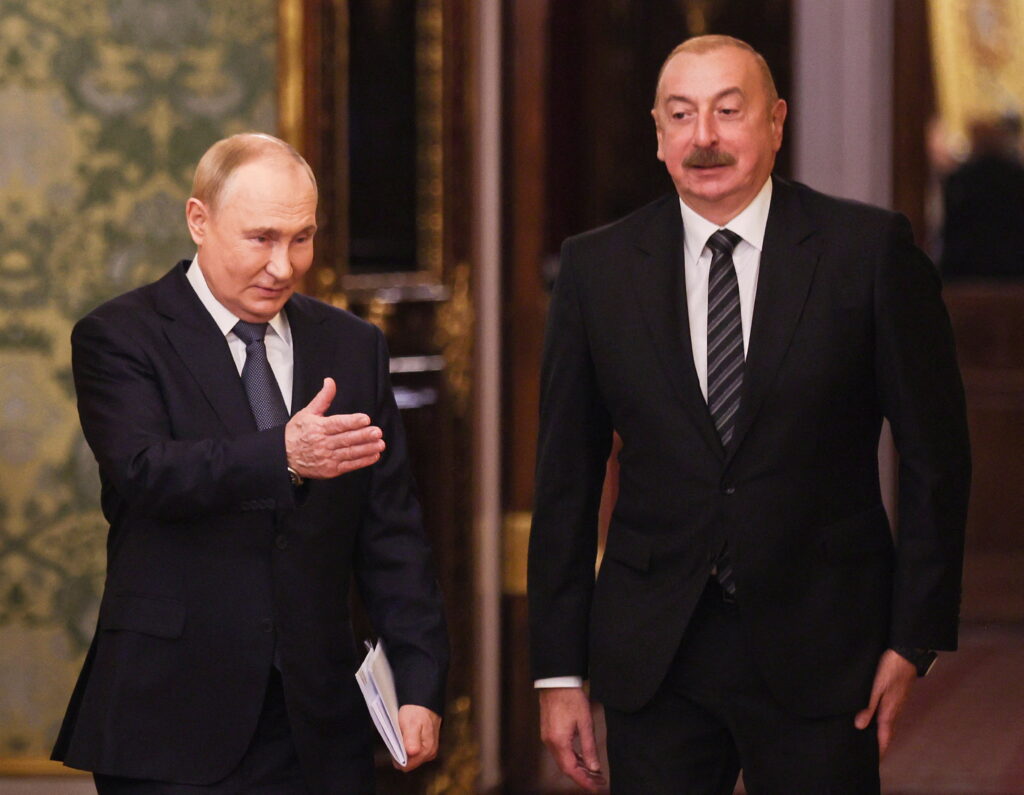If you’re sitting in the Kremlin, you are likely quite pleased with how 2021 turned out in the Caucasus.
The chaos from last year’s Second Karabakh War between Armenia and Azerbaijan is largely past. There has been time to consolidate any gains. The entrance of Russian peacekeepers into Karabakh at that war’s conclusion had been a goal ever since the conflict’s outbreak three decades ago. Their presence has seen the territory transform into a Russian protectorate in all but name. Even more crucially, it is a hefty source of leverage against both Armenia and especially Azerbaijan. So alongside the Georgian breakaway states of Abkhazia and South Ossetia, whose status is unchanged, Russian troops are now deployed on the de jure territory of all three South Caucasus republics. Clearly, Moscow’s position in the region is now the most powerful it has been since the Soviet collapse in 1991.
But just like then, the region’s conflicts and disputes remain just as intractable as ever. In part, that intractability serves as a source of strength for a power which, as Russia does, enjoys the time-tested strategy of ‘divide and rule.’ That said, the volatility of security incidents in the Karabakh arena combines with an ominous set of underlying conditions to show that Moscow’s influence over the South Caucasus, while great, remains far from omnipotent.
The obvious focal point of attention in the Caucasus in 2021 is the still-smoldering fallout from last year’s Armenia-Azerbaijan war. There are still wider tremors of Azerbaijani assertiveness that Baku’s victory has wrought. With the arrival of 2,000 Russian peacekeepers and support staff into Karabakh on November 10, 2020, what remains of the territory has effectively fallen under Russian control. In practice, Russian servicemen work side-by-side with both Armenian and Azerbaijani personnel. Yet Moscow retains the final say on how any policy is implemented on the ground.
Perhaps overconfidently, Azerbaijani President Ilham Aliyev now seems to think himself the master of the neighbourhood. He has been spending this year conducting a policy of increased military pressure against a defeated Armenia. Partly that has been to force diplomatic concessions, ideally an agreement recognizing Azerbaijan’s territorial integrity.
An Armenian capitulation to that extend seems unlikely. What diplomats are honing in on now is the issue addressed in the ninth and last point of last year’s trilateral ceasefire agreement: that “[a]ll economic and transport connections in the region shall be unblocked.” To date, there has been no tangible progress on this issue at all. A much-awaited trilateral summit between Putin, Pashinyan and Aliyev in Sochi on November 26, the first since January, did not produce any new roadmap or timetable for establishing trade links and opening borders, beyond an ‘agreement to make future agreements.’ One wonders how feasible Moscow truly considers this grandiosely presented ‘reopening of trade links’ to be, given that the Armenia-Azerbaijan border remains an active combat zone in many areas. It seems likely that Aliyev will eventually be forced to back down from his demands of a ‘corridor,’ with its implications of Baku’s sovereign control, from mainland Azerbaijan to the exclave of Nakhchivan in favor of using a standard road link, supervised by Russian officers and subject to Armenian border controls. But the Azerbaijani president’s continued unchanged rhetoric on the issue suggests he will not back down soon, whether Moscow would like him to or not.
Peacekeepers setting the tone in Karabakh
More concerning for Moscow has been the increasing flaunting of the ceasefire regime in Karabakh by Azerbaijan’s armed forces. On December 3, Azerbaijani servicemen captured and killed a 65-year old farmer near the town of Chartar, close to the new line of contact between Karabakh and Azerbaijani forces. This was the third such instance in two months, following the October 10 killing of an Armenian civilian in Karabakh’s Martakert region by an Azerbaijani sniper and the November 8 fatal shooting of another civilian by an Azerbaijani soldier near the city of Shushi. Much like on the newly-manned Armenia-Azerbaijan border proper, Azerbaijani forces are simply too close to Armenian civilians for any real chance of a lasting peace to take hold – even if this was their intention, as it does not appear to be. One proposal that has been floated by Armenia’s human rights defender among others has been the creation of a demilitarized zone between Armenian and Azerbaijani forces, along both the line of contact in Karabakh and the Armenia-Azerbaijan border itself.
Such a proposal would make the Russian peacekeeping contingent’s job much easier and raise its credibility by likely eliminating the occasional Azerbaijani murder of Armenian civilians, making it a possible implementation to look for in 2022. This depends, however, on whether Moscow considers pushing through such a proposal (which Baku will likely oppose, as it runs counter to its current strategy of terrorizing Karabakh’s population to encourage emigration and reduce the enclave’s viability) politically worthwhile. Given that Putin noted, however, at the Sochi summit that “unfortunately, there are victims [in Karabakh recently]” and the need to “prevent anything like this from happening again,” it is worth watching whether Russia will push for an Azerbaijani pullback from some of its current military positions near Karabakh settlements.
Clinging to Abkhazia and South Ossetia
At any rate, despite the rumblings, the Armenia-Azerbaijan conflict remains largely contained and Russia the master of the situation. The same can be said of the other two ‘frozen conflicts’ in the Caucasus – those concerning the breakaway republics of South Ossetia and Abkhazia. Moscow retains a firm grip on both territories, the former in particular – sitting as it does like an outstretched fist jutting into central Georgia, in parts just a few kilometres from the country’s main east-west highway – acting as an ever-present reminder of how easily the Kremlin could carve the country in two if it ever so desired. The overall strategic picture in Georgia and its erstwhile territories has not changed in any appreciable way in years, especially with the government in Tbilisi devoted so much time in 2021 to openly alienating its strategic partners in Washington and Brussels. While the risk of apparently imminent large-scale conflict between Russia and Ukraine, if it occurs, could conceivably have an impact on the security situation in Georgia – the Kremlin could decide to punish another ‘disloyal’ former subject on a whim – this does not seem particularly likely.
The situation inside both Abkhazia and South Ossetia, meanwhile, continues to degrade, with little indication that Moscow intends on reversing this trend in either. The latter has been gripped by a political crisis for over a year now following the killing of a local man in police custody in August 2020, in a severe challenge to the legitimacy of local authorities in the eyes of the populace. In the former, a spiraling electricity crisis over the past two years has shown how incredibly mismanaged the territory has been, with the Abkhaz government now unable to meet even basic needs of the population. The Abkhaz state is so ineffectual it has been incapable of curbing large-scale electricity theft by cryptocurrency miners, squandering even the massive amount of free power – 40% of the total generated – it gets from the Enguri dam it shares with Georgia. Sukhum has been reduced to dispatching envoys to Moscow to beg for more funding, something the Kremlin is likely loathe to grant given how subsidies to Abkhazia were cut by over half from their peak ($300 million) in 2012, in large part due to how little return on investment was seen. One only needs a short walk around the Abkhaz capital, with its rotting buildings still scarred from a war nearly 30 years ago, to see how even the most basic improvements have not occurred in a generation of quasi-independence.
For the Kremlin, then, the current state of play across the South Caucasus is to its liking. Russia maintains an undeniable veto on the ultimate course of security developments across the region, from Abkhazia to the Absheron peninsula, and likely holds more influence than all other international actors put together. While there is a raft of smoldering local issues, many of which impact the lives of ordinary people in the region terribly, none of these are ultimately of much concern to officials in Moscow so long as they maintain this dominant position. But then, there is little new here. To paraphrase the late tsarist Foreign Minister, Aleksey Lobanov-Rostovsky, as he schemed for the Russian conquest of Ottoman Armenia at the turn of the 20th century: “We need Armenia. We don’t need the Armenians.”










